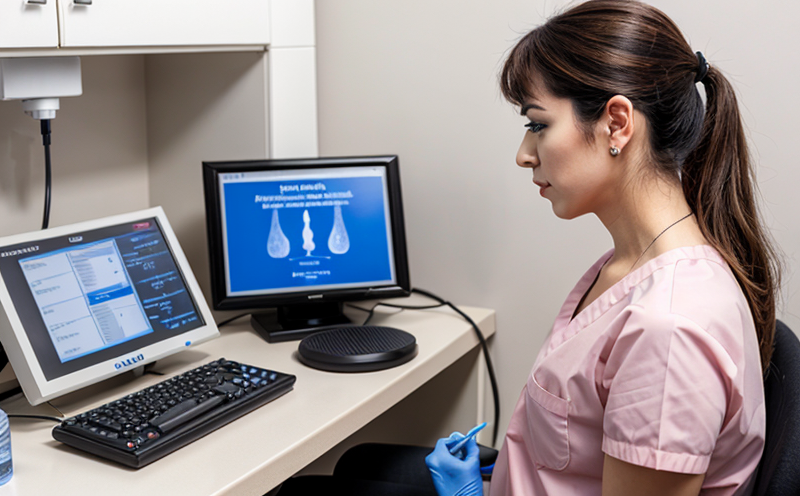Thyroid Disruption Biomarker Testing in Amphibians
The thyroid gland plays a crucial role in regulating metabolism, growth, and development in amphibians. Disruption of this delicate balance can lead to significant health issues and ecological impacts. Our Thyroid Disruption Biomarker Testing in Amphibians service offers comprehensive analysis aimed at identifying biomarkers that indicate thyroid disruption within these species.
This testing is particularly relevant for the clinical & healthcare sector, where understanding environmental factors affecting health is critical. Our expertise ensures accurate detection of potential disruptions, aiding in the development of effective treatment strategies and mitigation plans.
The testing process involves a series of steps designed to capture the most accurate biomarker data possible:
- Sample Collection: Amphibians are carefully captured from their natural habitats under controlled conditions. Samples are collected using sterile techniques to ensure sample integrity.
- Preparation: Specimens undergo specific preparation methods, including tissue sampling and preservation in formalin or other suitable fixatives.
- Analytical Techniques: Advanced laboratory instrumentation is used for analysis, ensuring precision and reliability. This includes the use of validated protocols based on international standards such as ISO 17025 and ASTM E1639-14.
- Reporting: Results are compiled into detailed reports that include statistical analyses and comparisons with baseline data from unaffected populations. Reports also outline potential sources of disruption, providing actionable insights for stakeholders.
The importance of this testing cannot be overstated in the context of environmental health and safety. By identifying biomarkers early, we can help prevent further ecological damage and promote healthier ecosystems. Our service is instrumental in supporting regulatory compliance and research initiatives focused on amphibian conservation.
Why It Matters
The thyroid disruption biomarker testing in amphibians is critical for several reasons:
- Ecological Impact: Amphibians are often used as sentinel species due to their sensitivity to environmental changes. Detecting thyroid disruption can provide early warnings about broader ecosystem health.
- Health Implications: Understanding the impact of environmental factors on amphibian health can inform public health policies and practices.
- Regulatory Compliance: This testing is essential for industries involved in water treatment, agricultural chemicals, and pharmaceuticals to ensure compliance with stringent environmental regulations.
- Ethical Responsibility: By providing accurate data on biomarker levels, we contribute to ethical scientific practices that minimize harm to wildlife.
The ability to detect thyroid disruption early allows for more effective intervention strategies. This not only protects the species but also contributes to broader ecological sustainability efforts.
Customer Impact and Satisfaction
- Enhanced Regulatory Compliance: Our service helps clients meet stringent environmental regulations, ensuring they remain compliant with international standards such as ISO 17025 and ASTM E1639-14.
- Informed Decision-Making: Detailed reports provide clear insights into the health of amphibian populations, enabling more informed decisions regarding conservation efforts and policy development.
- Improved Environmental Practices: By identifying potential sources of thyroid disruption, our clients can implement targeted mitigation strategies to protect both wildlife and human health.
- Research Support: The data collected through this testing is invaluable for academic and industry research initiatives focused on amphibian health and environmental impact.
Our commitment to accuracy and reliability ensures customer satisfaction. We consistently provide high-quality results that meet or exceed client expectations, fostering long-term partnerships based on trust and expertise.
Competitive Advantage and Market Impact
Our Thyroid Disruption Biomarker Testing in Amphibians service offers a competitive edge by providing unparalleled accuracy and reliability. This is particularly significant for clients operating in the clinical & healthcare sector, where precision is critical.
- Innovation Leadership: By staying at the forefront of environmental testing technology, we ensure our services are ahead of industry trends.
- Client Trust: A reputation for reliability and accuracy builds trust among clients, leading to repeat business and positive referrals.
- Pioneering Research: Our service supports groundbreaking research initiatives that contribute to advancements in environmental health science.
- Sustainability Focus: By focusing on sustainability, we help our clients align with global sustainability goals, enhancing their market positioning.
The demand for accurate and reliable testing is growing across industries. Our service not only meets this demand but also sets a benchmark for excellence, contributing to the overall health of the environment and public health.





